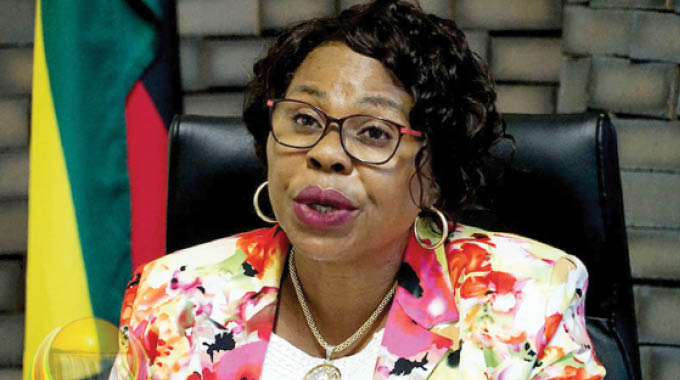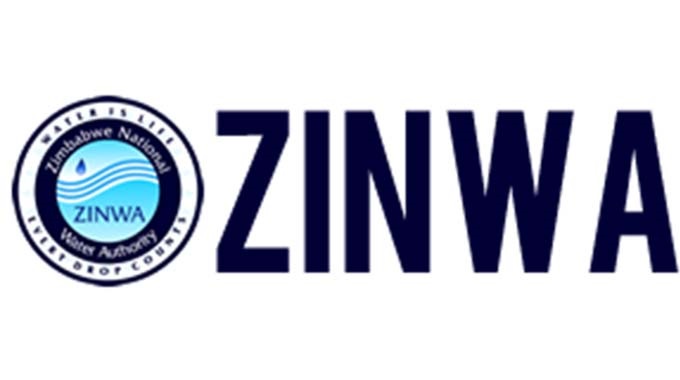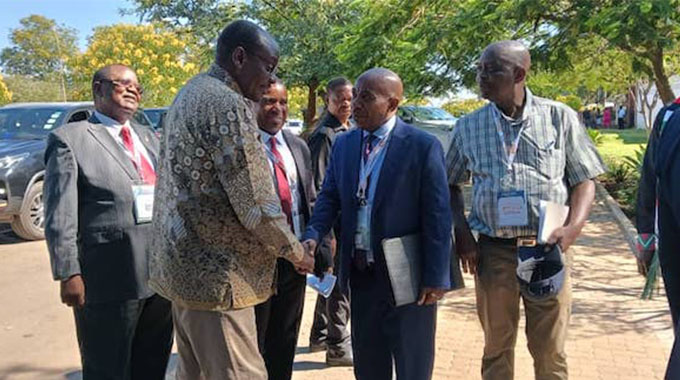World Press Freedom Day: Government commended

Harare Bureau
ZIMBABWE yesterday joined the rest of the world in commemorating World Press Freedom Day with media representatives commending the Second Republic for its reforms upgrading rights of access to information and increasing diversity and pluralism in the broadcasting sector.
This year’s World Press Freedom Day theme is: “Information as a Public Good”.
In a statement yesterday, Information, Publicity and Broadcasting Services Minister Monica Mutsvangwa said the theme underlined the indisputable importance of verified and reliable information. She called for attention to the essential role of free and professional journalists in producing and disseminating information by tackling misinformation and other harmful content.
Owners of media houses should ensure that the welfare of media practitioners is improved through provision of decent working conditions and life-rewarding salaries.
“I am proud that under the Second Republic, Zimbabwe has made significant strides in ensuring a safe, free and competitive operating environment for all media and ensuring that indeed information is treated as a public good.
“Highlights of the Government’s efforts towards ensuring Press freedom include the passage of several bills into laws and the opening of airwaves for television and radio broadcasts,” she said.
In July, 2020, the Access to Information and Protection of privacy Act (Aippa) was repealed. A new and functional Freedom of information Act heralded a new chapter in the country’s media landscape in as far as transparency and access to information is concerned.
The Zimbabwe Media Commission was transformed and is now more of a consumer complaints investigator.
“In April this year, the Zimbabwe Media Commission Act came into effect. This Act seeks to make further provision with regard to the functions of the ZMC to provide for the manner in which the commission exercises its functions. It also provides for the investigation and hearing procedure by the commission of complaints received and to provide for the secretariat of the commission among others,” said Minister Mutsvangwa.
She said in opening up of airwaves, six private television stations were granted licences by the Broadcasting Authority of Zimbabwe in November last year.
In addition, six language-based community radio stations were licensed and it is expected that these will bring even more diversity and plurality into the media sector as well as create employment.
“These developments are an expression of Government’s tolerance for different voices and views from media practitioners.
“This shows Government of Zimbabwe’s full commitment to the principles of Press freedom contained in Article 19 of the Universal Declaration of human Rights and the African Commission on Human and People’s Rights, which we are reinforcing through our own country’s supreme law, the Constitution,” said Minister Mutsvangwa.
She urged media practitioners to strive to improve professional standards.
The media, Minister Mutsvangwa said, should report in a truthful, informative and analytical way and avoid temptation of tabloid sensationalism.
“Government has adopted stringent policies against the spread of fake news and it is our belief that the measures in place provide good grounds for credible journalists to thrive,” she said.
Minister Mutsvangwa thanked journalists for their dedication to duty since the outbreak of the Covid-19 pandemic.
Misa Zimbabwe chairperson Mr Golden Maunganidze commended Government for the enactment of the Freedom of Information Act last year in place of the widely discredited (Aippa).
“The new information law is a progressive step towards fostering citizens’ right to access to information,” he said.
Mr Maunganidze said other commendable developments included the licensing of the country’s first ever community radio stations and private commercial television stations as well as campus radio stations at Great Zimbabwe University, Midlands State University, University of Zimbabwe, Lupane State University, National University of Science and Technology and Harare Polytechnic College.
“This enhances diversity and pluralism in the broadcasting sector and citizens’ right to access to information as a public good that assists in making informed decisions and choices.
Zimbabwe National Editors Forum deputy chairperson, Mrs Victoria Ruzvidzo, said this year’s World Press Freedom Day came at a time when the media landscape in Zimbabwe had been transformed in a big way.
“The coming in of the Second Republic has ushered in a reform agenda that has restored journalists’ rights and freedoms. The Aippa Act in which journalists and other stakeholders had concerns was replaced by the Freedom of Information Act and the Media Commission Act.
The other two bills meant to be tabled before Parliament are Media Practitioners Bill as well as Protection of Personal Information Bill.
Furthermore, the media space is being widened as attested by the licensing of six television channels.
“One major stride is the recognition of women in the media by Government that has seen more women being appointed in positions of authority. Our Minister of Information Senator Monica Mutsvangwa has really come out in full force to ensure more women are recognised and appointed as editors and station managers alike,” she said.
Zimbabwe Union of Journalists president Mr Michael Chideme encouraged public institutions to allow easy access to information to increase trust and confidence.
“We also urge employers to provide tools of the trade that allow journalists to do their work such as cameras, recorders, transport and living wages,” he said.
World Press Freedom Day was proclaimed in 1993 by the UN General Assembly following a recommendation adopted at the 26th session of Unesco’s General Conference in 1991.











Comments